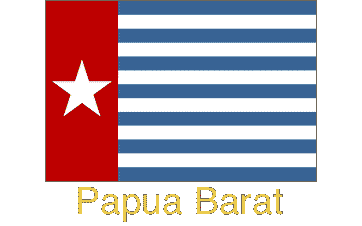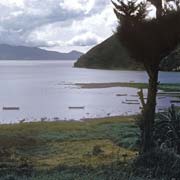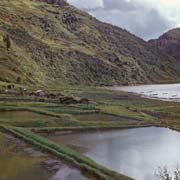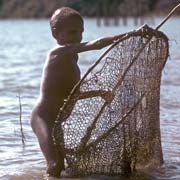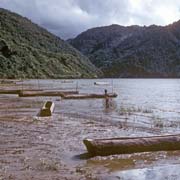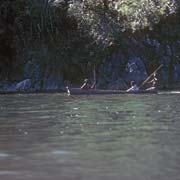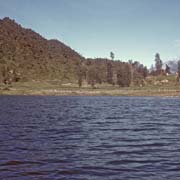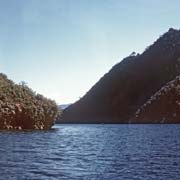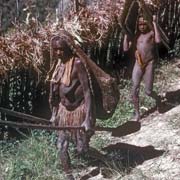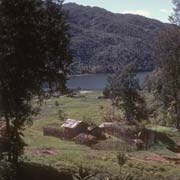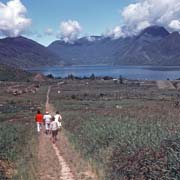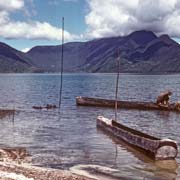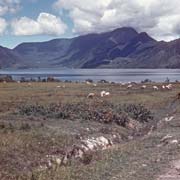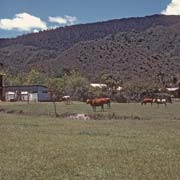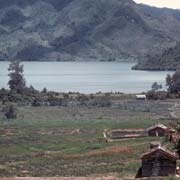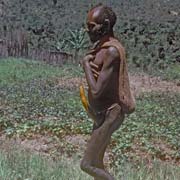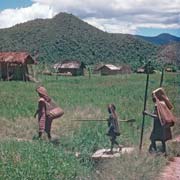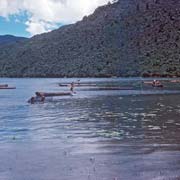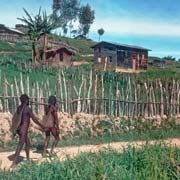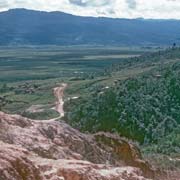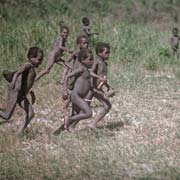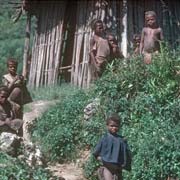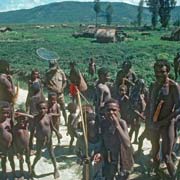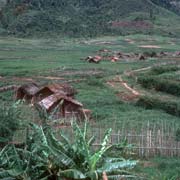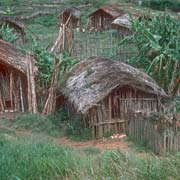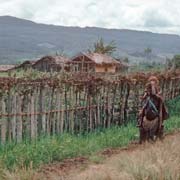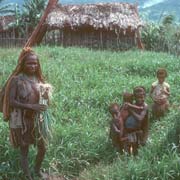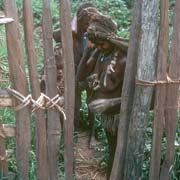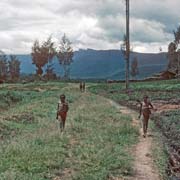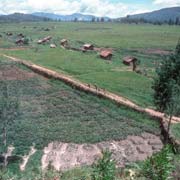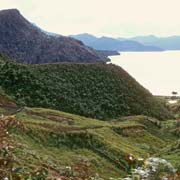Photos of Around Lake Paniai - the Wisselmeren, West-Papua
Around Lake Paniai - the Wisselmeren
Lake Paniai, with smaller Lake Tigi and Lake Tage used to be called the "Wisselmeren", named after Frits Wissel, a Dutch pilot who discovered the lakes during a flight he made on 31 December 1936 in the interior. He saw a large lake with canoes and this was the first time the outside world realised the central mountain area was inhabited. It is a beautiful area, with great views and friendly people.
you may then send it as a postcard if you wish.
The people who live here are the Ekari, also known as Mee, Ekagi or Kapauku, although the latter term is disliked; it means mountain dweller and is considered offensive. Other groups in the area are Moni, Wolani and Dani in the east. They came into contact with the outside world for the first time in 1938 when the administrative post of Enarotali was established. During the Second World War the Ekari people were vital to the war effort of Vic de Bruyn, a district officer in Netherlands New Guinea; he was looked after by the Ekari during the Japanese occupation and was able to send intelligence to Australia; his story was written by Dutch author Anthony Van Kampen, who dubbed him "Jungle Pimpernel".
However, in 1956 there was a revolt against Dutch colonial rule, when certain customs were forbidden; among others, people who committed adultery or witchcraft were killed with arrows and the Dutch tried to force the Ekari to stop this. A measles epidemic among children and disease among pigs convinced the Ekari the Dutch had brought evil spirits and when, on 4 November 1965 American mission buildings were opened in the Obana valley, to the south west of Lake Paniai, they were attacked; eight mission people died. Dutch Marines were flown in with mortars but the Dutch eventually managed to quell the revolt by starting a tribal war, using people of villages around Lake Tigi, who were hostile to the rebels; more than 100 people were killed, mostly by arrows.
The Ekari, like the other highland tribes, always resisted foreign intrusion and in April 1969 an uprising started among the 100,000 people in the Paniai area of Waghete and Enarotali with the demand that the District Commissioner and all Javanese officials be removed; ninety-five armed Papuan police defected. The Indonesian officials were driven from their posts, the West Papuan flag raised, airstrips occupied. A reporter of Agence France Press commented in May 1969: "Primitive tribesmen, supposedly ignorant bow-and-arrow natives, not supposed to know the difference between their country and any other, have shown a marked degree of sophistication". in July - August 1969, during the farcical "Act of Free Choice", large numbers of villagers in the Paniai region near Enarotali were still fighting the occupying Indonesian military.
